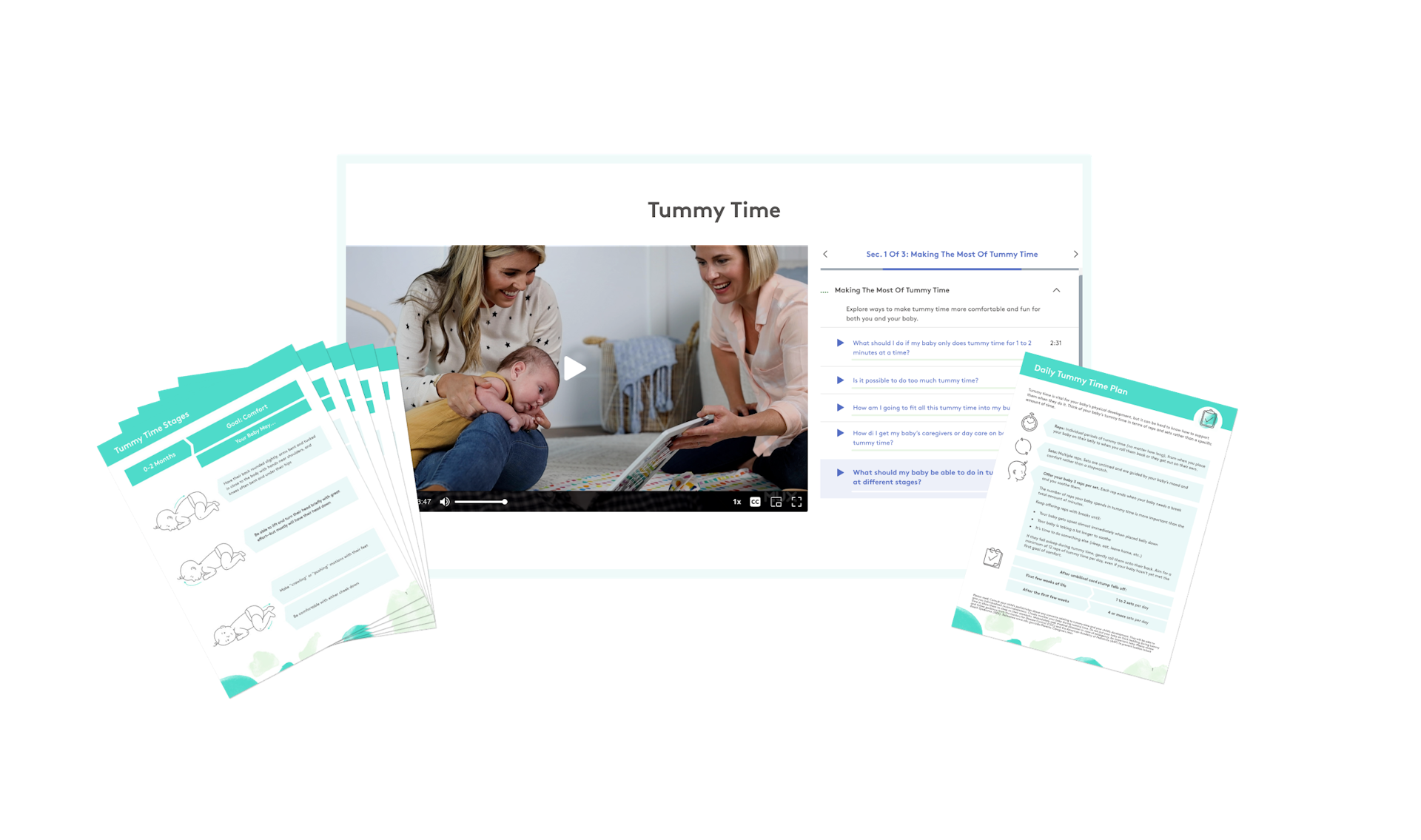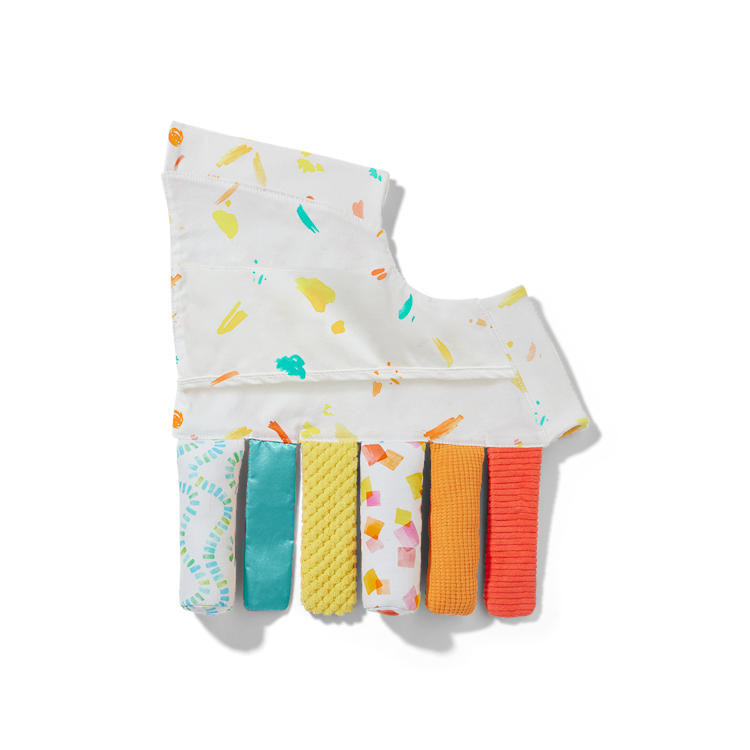The Tummy Time Course Pack
Help prepare your baby’s body for rolling, crawling, and walking
Starting at $50.00
Customize your Course Pack with these supportive tools:
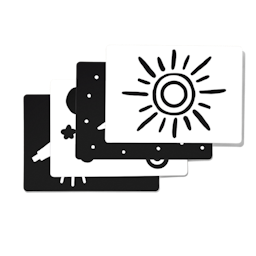 $7.00
$7.00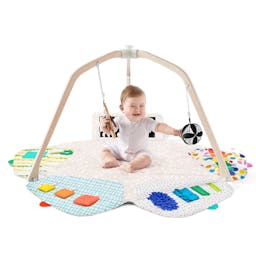 $140.00
$140.00
Your Pack: $50.00
The Tummy Time Course Pack
Free shipping on Course Packs
Carbon-neutral shipping
What you'll learn
Tummy time is essential to helping your baby prepare their body for big milestones like rolling over, sitting up, and crawling. It also provides many not-so-obvious benefits like promoting bonding, supporting digestion, and more—all covered in this Course Pack. You’ll gain a firm understanding of what tummy time looks like at different stages, how often to offer it and for how long, and how to make tummy time a happy, stress-free experience.
What you'll get
Expert guidance for ages 0–6 months
Unlimited video and audio access
2 downloadable guides
Inside the Course Pack

Expert Videos
Sec. 1 of 3: Tummy time basics
Tummy time basics
Learn about the many benefits of tummy time from Pediatric Occupational Therapist Rachel Coley.
Why is tummy time worth my time and effort?
3:07
Why do some people say babies don't need tummy time?
3:51
How old should my baby be before I start doing tummy time?
1:47
How old should my baby be before I put them on the floor?
0:44
What if the floor isn't safe for tummy time?
0:48
How old should my baby be before I stop doing tummy time?
1:25
What counts as tummy time?
1:17
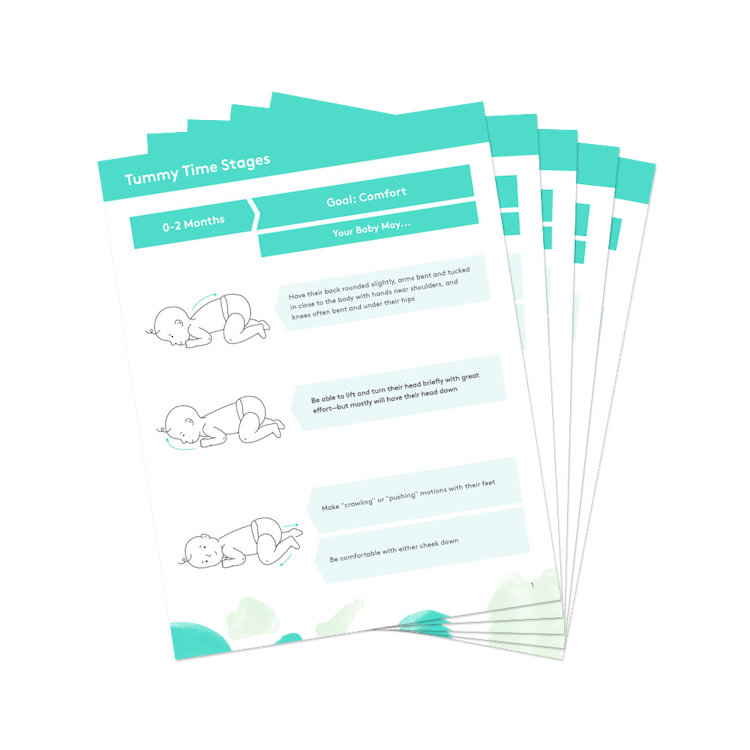
Tummy Time Stages Guide
Use the included developmental sequence to understand the stages of tummy time and how you can help your baby progress to the next stage.
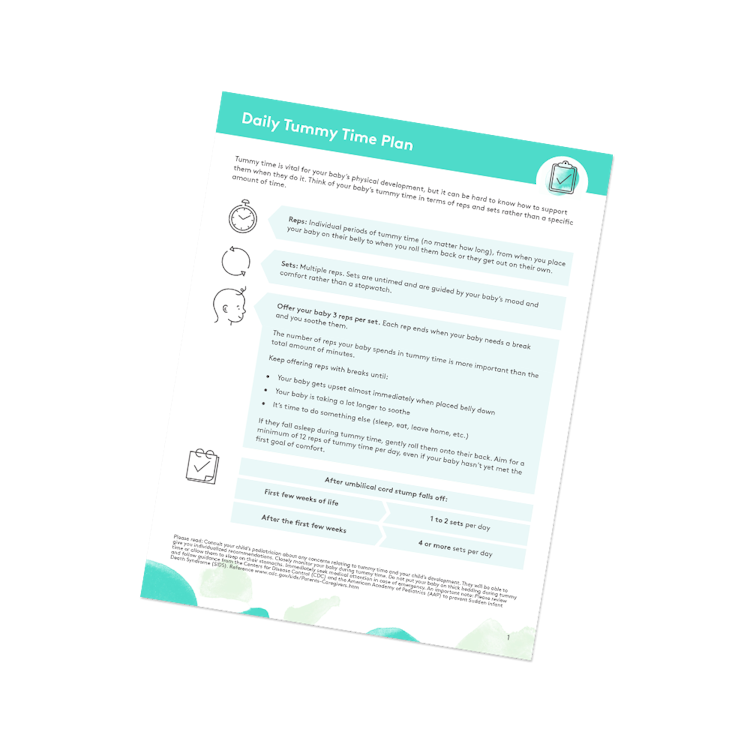
Daily Tummy Time Plan
Put what you learn into action with this helpful outline that gives you an easy tummy time plan to follow.
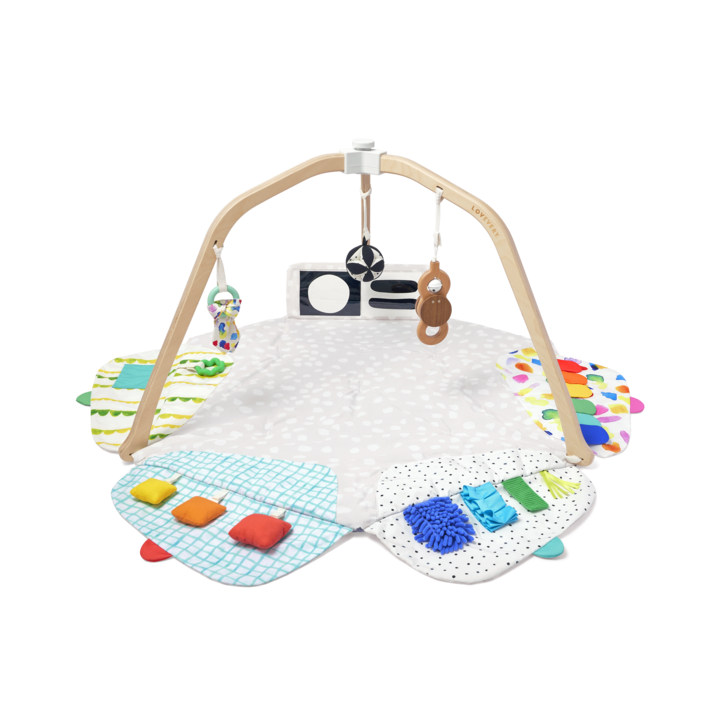
The Play Gym
Take tummy time to the next level with this award-winning play mat designed with stage-based playthings and activities to engage your baby throughout their first year.
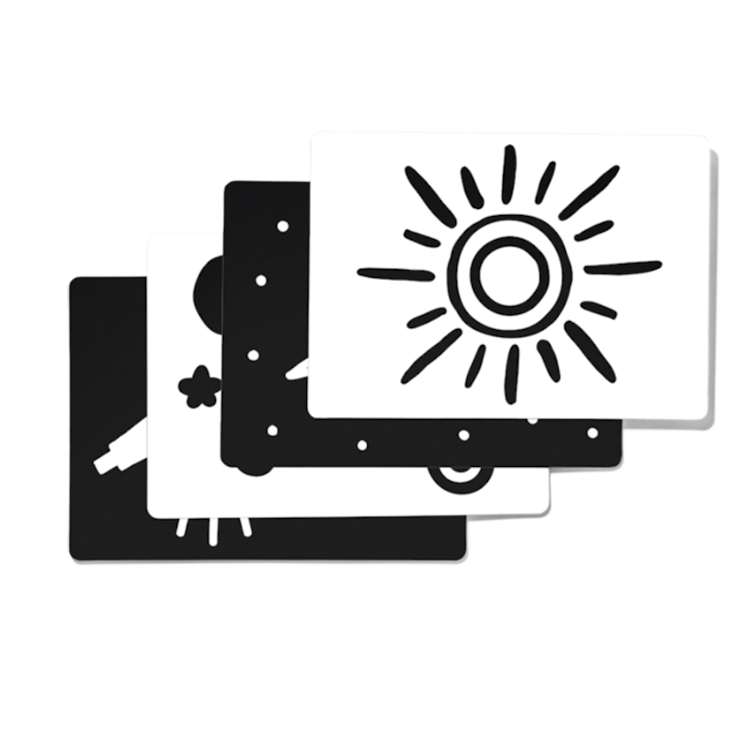
Black and White Card Set
Add visual interest and development to your baby’s tummy time practice with these high-contrast cards that vary in complexity to help strengthen your baby’s eyesight.
We did all the research so you don’t have to
Sign up for Lovevery emails to receive activity ideas, helpful child development info, and exciting product updates.

